Intel Kaby Lake: 14nm+, Higher Clocks, New Media Engine
Media Performance
HEVC And VP9 Performance
Intel provided two live demonstrations to illustrate the hardware-accelerated performance gains, and associated reduction in CPU utilization with Kaby Lake (compared to Skylake).
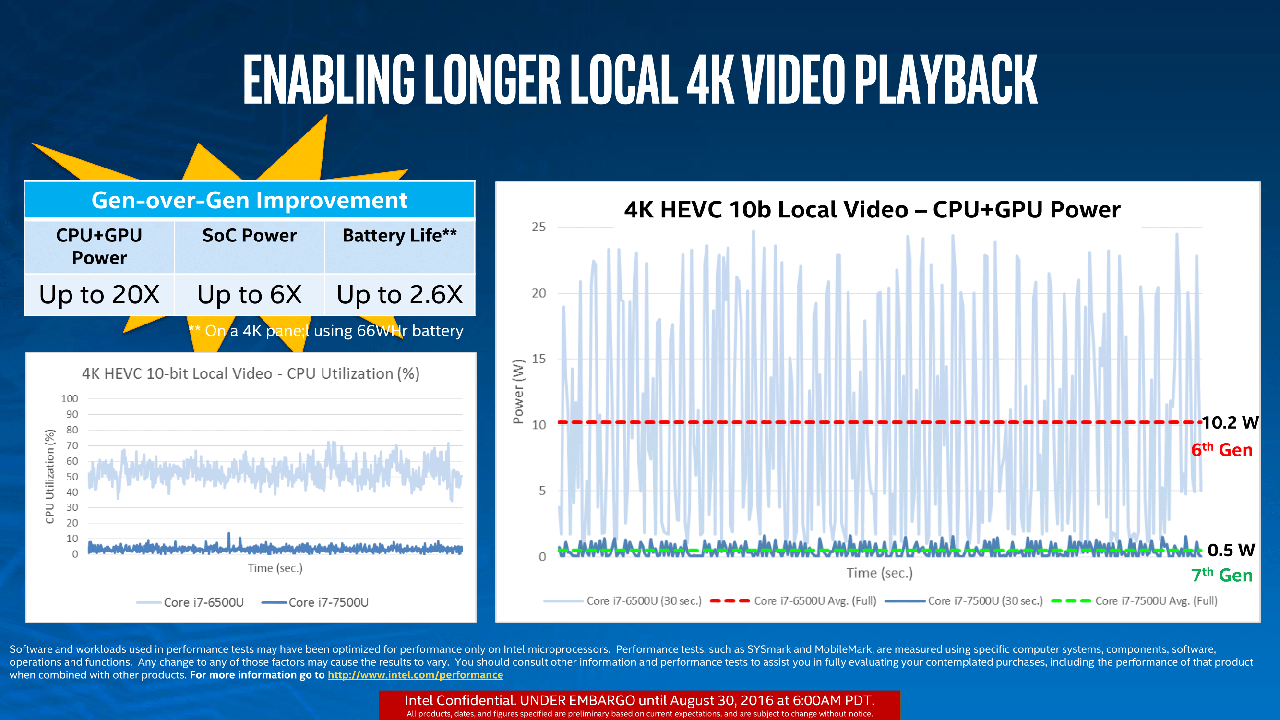
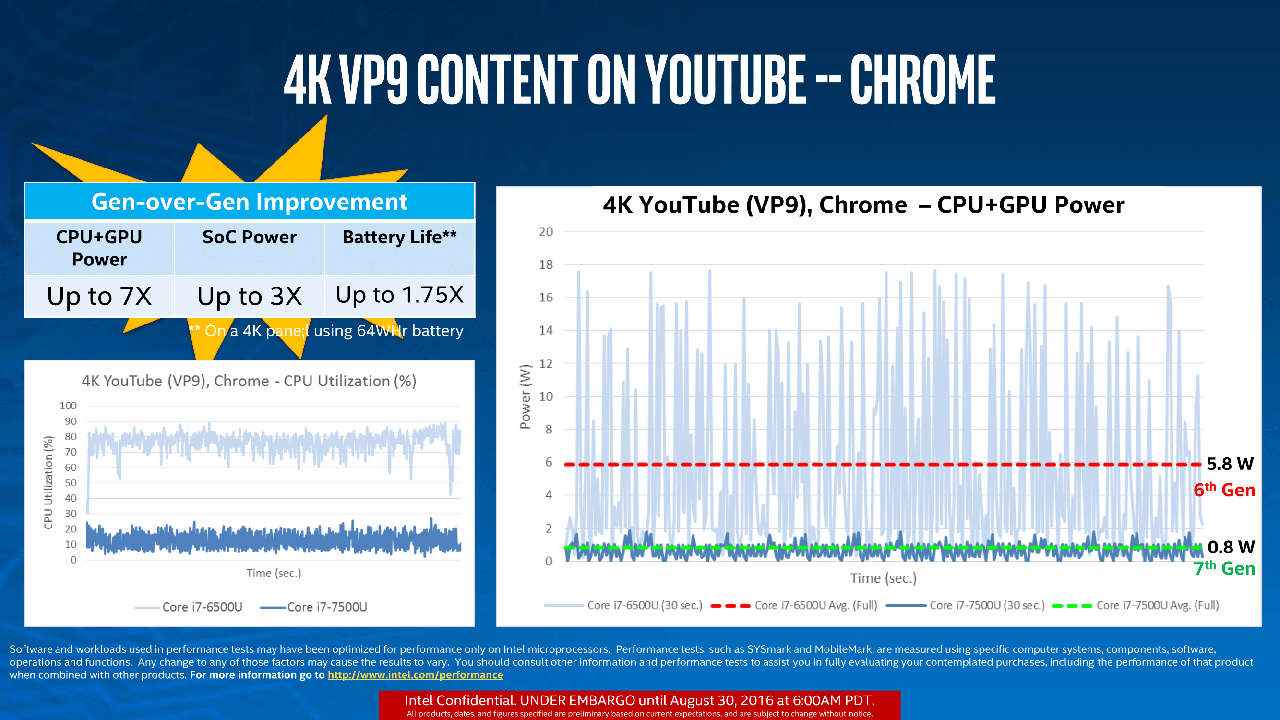
The first demonstration highlighted the combined power draw for both the CPU and GPU during local 4K HEVC video playback. The Skylake system exhibited 50% host processor utilization and 10.2W of power draw, while the Kaby Lake system only required 5% of the CPU and a mere 0.5W of power. The increased efficiency equates to a 20x power reduction and up to 2.6x more battery life.
The VP9 demonstration consisted of streaming YouTube content in Chrome, and while not as impressive, it still delivered a marked increase in efficiency. The Kaby Lake system required ~15% CPU utilization and 0.8W, while the Skylake system consumed nearly 75% of CPU resources and 5.8W of power during the same workload.
The Net-Net
Finally, we come down to the net gains. Intel broke performance down to three segments, work, create, and game, comparing Kaby Lake to a five-year-old PC. Of course, some will groan with the comparison to such an old system, but Intel contends that the numbers are relevant because a majority of users will migrate from these older platforms to Kaby Lake.
In either case, the company claims a 1.7x increase in work productivity, defined as common tasks like converting Word documents to PDFs, PowerPoint use, and Excel macros. The create portion, which encompasses creating, editing, and sharing 4K videos, showed an 8.6x increase, and the Kaby Lake system provided a 3x boost while playing Overwatch.
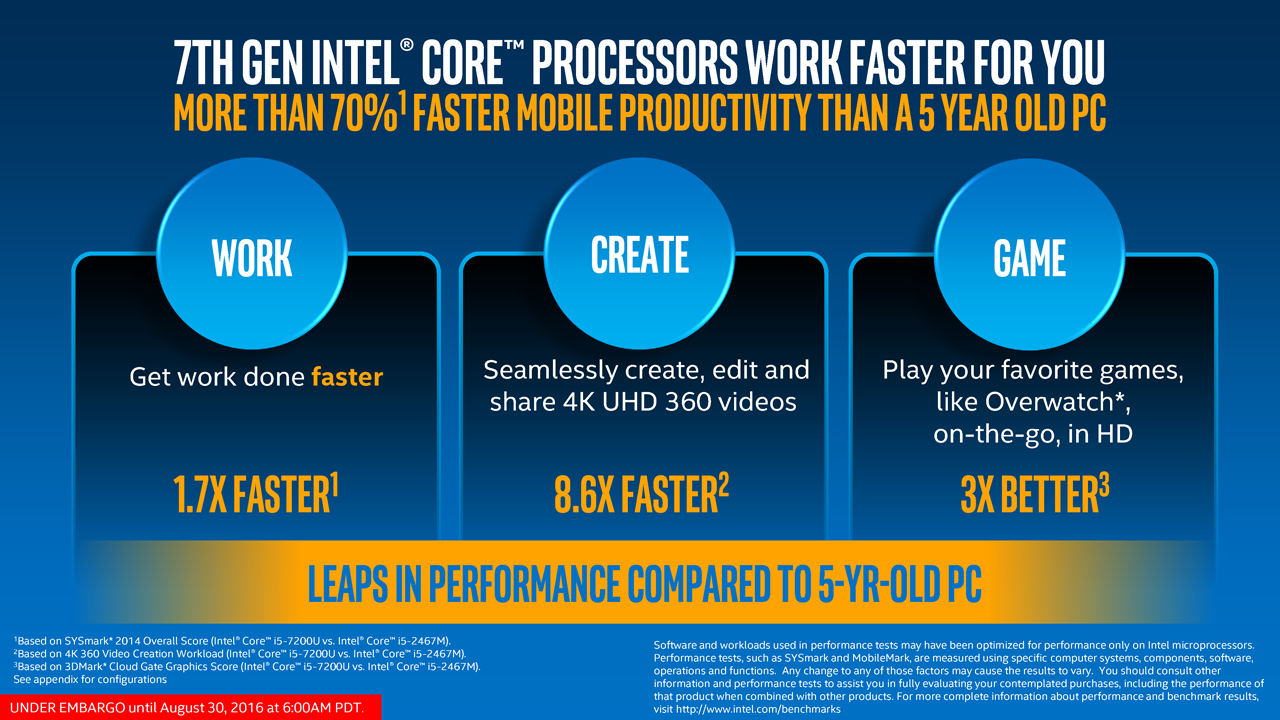
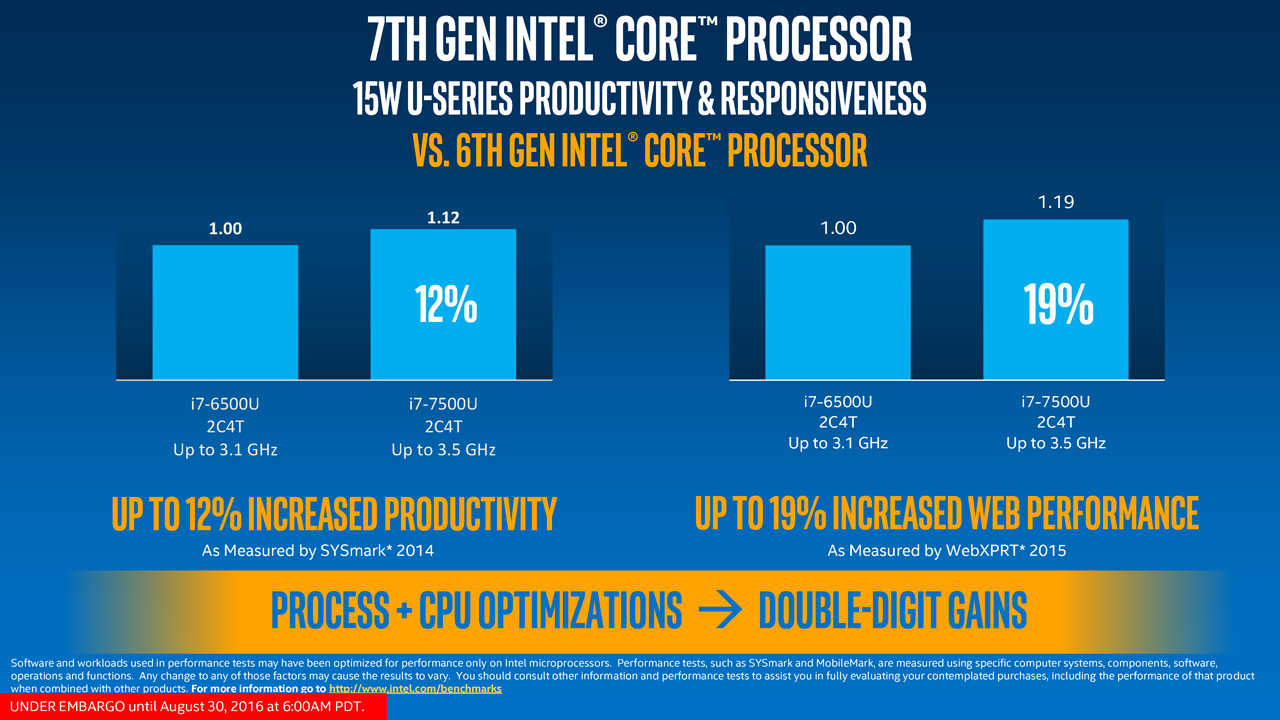
In a more relevant comparison for enthusiasts, the company highlighted a few Skylake versus Kaby Lake test results. Intel's measurements indicate a 12% performance increase in SYSmark 2014, which is an application-based benchmark that tests office productivity, media creation, and data/financial analysis workloads. WebXPRT 2015 measures performance with HTML5 and JavaScript-based workloads, and Intel also provided test results that highlight a 19% performance increase over Skylake during common Web browsing activity.
It is important to note that Intel only provided the aggregate performance results in the slide above, but gave us a more detailed test-by-test breakdown in the images below.
Get Tom's Hardware's best news and in-depth reviews, straight to your inbox.
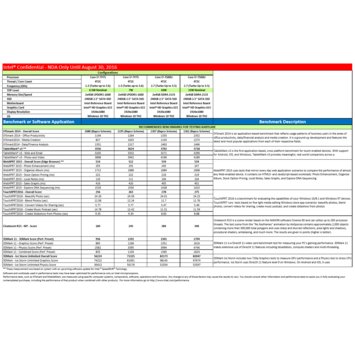
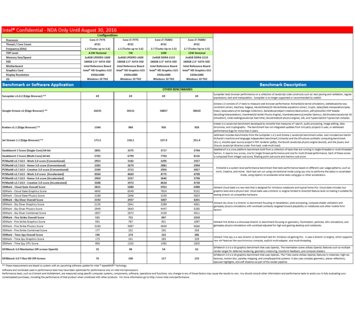
MORE: Best CPUs
MORE: Intel & AMD Processor Hierarchy
MORE: All CPU Content

Paul Alcorn is the Editor-in-Chief for Tom's Hardware US. He also writes news and reviews on CPUs, storage, and enterprise hardware.
-
ComputerSecurityGuy Yup, Skylake Refresh. Higher clocks. Slightly lower power consumption. Probably saw a demo of Overwatch on Iris Pro 680 (580 with 200mHz or so higher clocks. Overall, probably not a very interesting release. The only hopeful thing is they might bring Iris/Iris Pro to lower end or lower power SKUs.Reply -
80-watt Hamster Sheesh, why all the negativity? As someone who put together a Skylake platform with an i3, I'm looking forward to more capable -K processors being released for the same socket.Reply -
txhorn Kaby Lake's hardware encode and decode of 4k codecs is significantly better than Skylake. VP9 4k decode is down to 10-20% cpu usage from 70-80% usage. That's pretty awesome for HTPC's and high-res portable battery life.Reply -
AndrewJacksonZA Typo on page two: "Intel is optimizing its transistors by improving their fin profile with taller fins and a wider gate pitch" That should be a NARROWER gate pitch.Reply -
goblinissimus Nothing about USB 3.1 Gen 2, TB3, DP1.3, HDMI 2.0b/HDCP 2.2?Reply
Also, 12 bit (aka Dolby Vision or DV) HEVC decode would have been nice. -
digitalgriffin You know intel keeps bragging about how you get more battery life. Yet manufacturers keep shrinking the Wh on the batteries and intel keeps raising their prices. You really gain nothing in terms of battery life or cost.Reply -
80-watt Hamster Reply18520394 said:$389 for a 2 core 4 thread processor....thanks but no thanks.
4C8T perhaps you mean? I can't see Intel trying to charge nearly $400 for an i3.